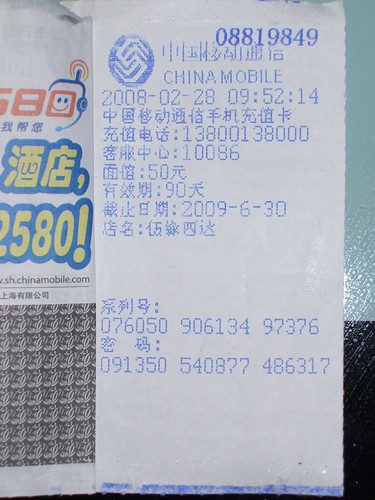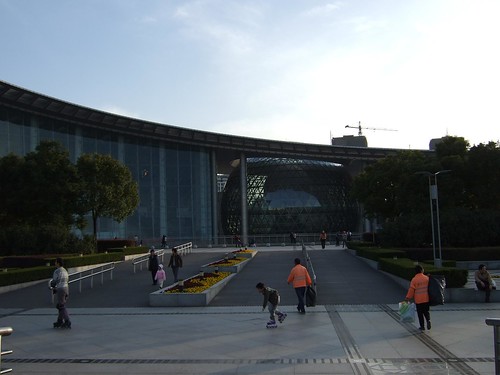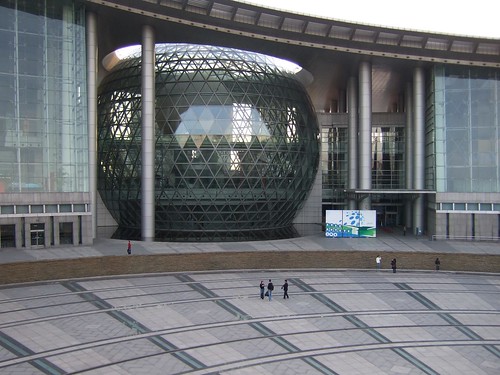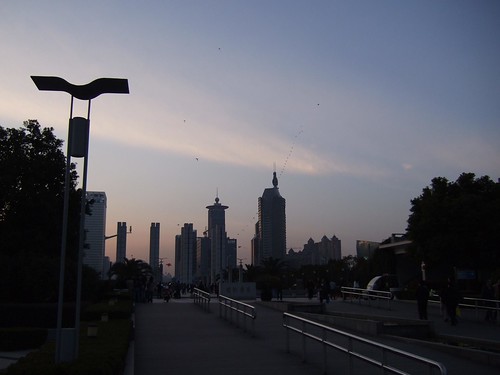Technology · Dominik Mayer · Products, Asia, Productivity
From Bauxite to Aluminium
Emirates Global Aluminium explains how Bauxite is mined and refined.
And some footage of an aluminum smelter:
The Future of Web Software Is HTML-Over-WebSockets
Over at A List Apart Matt E. Patterson describes HTML-over-WebSockets:
What about multi-user chat? Or document collaboration? In classic frameworks and SPAs, these are the features we put off because of their difficulty and the code acrobatics needed to keep everyone’s states aligned. With HTML-over-the-wire, we’re just pushing tiny bits of HTML based on one user’s changes to every other user currently subscribed to the channel. They’ll see exactly the same thing as if they hit refresh and asked the server for the entire HTML page anew. And you can get those bits to every user in under 30ms.
Most interesting tech article I’ve read in a while.
Basecamp has been pushing this approach with Hotwire.
And Phoenix with LiveViews:
Livestream Censorship
Joshua Drummer on Twitter:
Wife trying livestreaming on Douyin. Comes over to me in the middle of a stream and puts me on camera. After about a minute, notice pops up saying that foreigners are not allowed to appear on livestreams “without permission”.
Journalist Isabelle Niu replied:
This seems really alarming so I did a little digging and found that apparently ByteDance, which owns Douyin & TikTok, explained how it self-regulates livestreaming content in a detailed 2019 report. I’ll break down some of the main points of the report in this thread
Read the whole thing. Welcome to semi-automated livestream censorship.
On the Huawei Campus
“We wanted to invite U.S. media to come ask any questions on behalf of American customers,” said Catherine Chen, Huawei’s corporate senior vice president and director of the board.
VICE News took Huawei up on its offer and found out we were the only news organization that showed up.
The gigantic complex contains twelve European style towns.
Are We Living in a Computer Simulation? Let’s Not Find Out
In 2003, the philosopher Nick Bostrom made an ingenious argument that we might be living in a computer simulation created by a more advanced civilization. He argued that if you believe that our civilization will one day run many sophisticated simulations concerning its ancestors, then you should believe that we’re probably in an ancestor simulation right now. His reasoning? If people eventually develop simulation technology — no matter how long that takes — and if they’re interested in creating simulations of their ancestors, then simulated people with experiences just like ours will vastly outnumber unsimulated people.
Nick Bostrom is the author of Superintelligence. (Check out Tim Urban’s take on it for Wait but Why.)
He makes a compelling argument with, again, grave consequences.
Spot
This is what the future looks like.
Five A350 Flying in Formation
This is amazing.
Superintelligence
In his article “Will Superintelligent Machines Destroy Humanity?” Ronald Bailey reviews Nick Bostrom’s book “Superintelligence: Paths, Dangers, Strategies”:
Bostrom argues that it is important to figure out how to control an AI before turning it on, because it will resist attempts to change its final goals once it begins operating. In that case, we’ll get only one chance to give the AI the right values and aims. […]
An example of the first approach would be to try to confine the AI to a “box” from which it has no direct access to the outside world. Its handlers would then treat it as an oracle, posing questions to it such as how can we might exceed the speed of light or cure cancer. But Bostrom thinks the AI would eventually get out of the box, noting that “Human beings are not secure systems, especially when pitched against a super intelligent schemer and persuader.”
Fascinating read. Another book for my to do list.
Tongji in the News
German news site Spiegel Online cites Tongji professor Xie Weida, deputy director of the Railway Institute who says it’s “unlikely” that China will buy the Maglev technology.
An English article can be found at The Earth Times.
China Mobile
Because you also pay when someone calls you, you’re unreachable if there’s no more money on the card. So I bought an update right away. It wasn’t that easy to tell the man what I wanted. We had no common language. As most Chinese he spoke neither English nor German and my Chinese is hardly existent. I ended up with this:

And had no idea what to do. I called 13800138000 and switched to English but I still needed a “user pin number” which I don’t have. One hour after I had started – and only due to Chinese help – I finally had 48 Yuan on the card. I’d like to know where the missing 2 Yuan went.
Compelling Offers
Amazon offered me some great things today. Books about elastostatics and maths for engineers, another one about programming in C and a scientific calculator. Halleluja.









